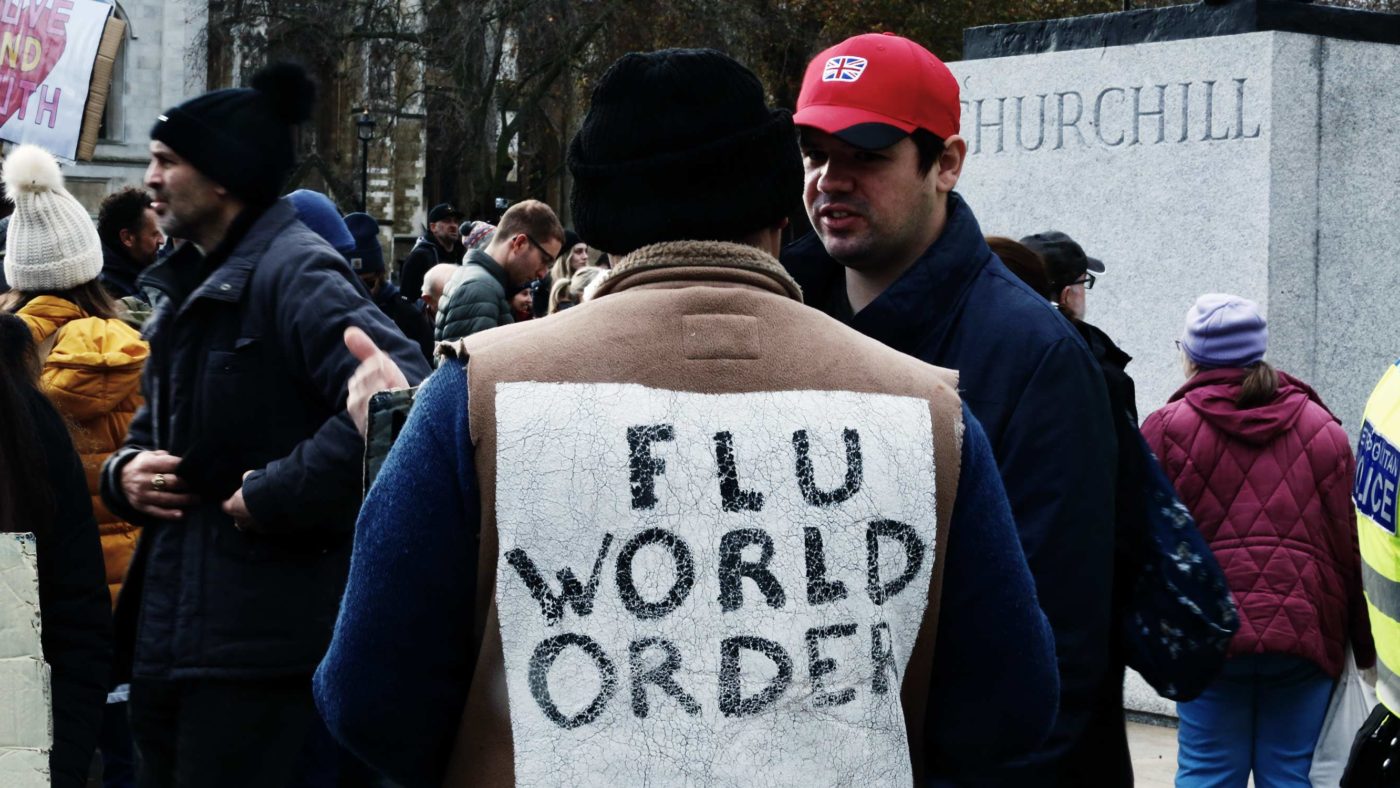Conspiracy theories have long been considered eccentric and ridiculous in Britain. You may have had a relative who believed the CIA murdered JFK or that Harold Wilson was nearly overthrown by a military coup. But in typically English fashion, we usually laughed at people like that.
Yet nowadays it feel as if there is more of this stuff about. Perusing Facebook, it can feel as if we all have friends and relatives who think the moon landings were fake or that the pandemic is part of Bill Gates’s plan to enslave the world.
The sense that conspiracy theorists are everywhere – newly radicalised by opaque algorithms – has underpinned much of the debate in Britain about vaccination for Covid-19. As the newly-approved Pfizer jab was being rolled out across British sites in December of last year, ITV “revealed” (several times in fact) that anti-vax beliefs “already have a following of 5.4 million people in the UK”. As the first vaccines came on stream, it was feared that many people would turn down a potentially life-saving jab because of Internet disinformation. Indeed, anti-vax groups reportedly saw the Covid pandemic as “a historic opportunity” to further their cause.
But when the vaccine was actually rolled out – and once people began to see friends and relatives getting the jab and not transforming into mind-controlled lizards – a lot of what’s politely called ‘vaccine hesitancy’ melted away. Indeed, a recent ONS survey found that 94% of Britons ‘had received, are awaiting or would be likely to have the vaccine if offered’.
In other words, the conspiracy theorists suffered a rout (though if you’re a conspiracy theorist this is probably further proof of MSM poll-fixing). Another recent Ipsos MORI survey found that a third of Britons (33%) think anti-vax campaigners are selfish, and four in 10 (41%) think they are stupid. This compares with just 5% who believe they are trying to help others and 3% who believe they are smart.
It seems that we perhaps overestimated the number of both vaccine sceptics and outright conspiracy theorists in our midst.
I think we did. I also believe this is one of the challenges that comes with a political discourse channelled predominantly through social media. It’s not so much polarisation that’s the problem (although that can be a problem); it’s that we overestimate the influence of extremists who swim among us.
This is a distorting affect that extends beyond fringe conspiracy theories. As a study of the US electorate noted, in recent years divisions over policy preferences haven’t increased; however Americans view their political opponents as more ‘dislikeable’ and ‘immoral’ than in the past. The frequency with which we encounter extreme voices online – and the way those voices are amplified by algorithms – seems to exacerbate the shared hostility. We are more inclined to believe our opponents are secretly Marxists or Fascists, even though they’re unlikely to be either of those things.
Online conspiracy theorists seem to generate the same terrifying spectre. Swarms of accounts (usually with earnest handles like ‘TruthSeeker’ or ‘FreeThinker’) are apt to descend on anyone who tweets about a hot topic (9/11, Syrian chemical weapons attacks and Covid-19 are particular favourites). The noise these accounts generate makes it feel as if the people who run them are everywhere. I’ve been on the receiving end of a few of these intrigues myself: I was once accused of sending Masonic hand gestures while a guest on the benign Sunday morning television show The Big Questions.
Moreover, it’s potentially becoming easier to inadvertently entrap oneself in a web of dangerous conspiratorial nonsense. One such victim was Gary Matthews, a Shrewsbury-based friend of my own family who tragically died from Covid-19 earlier this year. Gary had eschewed mask wearing and social distancing after falling in with local anti-science conspiracy theorists.
Yet Covid-19 conspiracy theories have overwhelmingly failed to penetrate public consciousness in Britain. Notably, one of the main UK online anti-lockdown groups (who are also anti-Covid vaccine and anti-5G) has even had to “review its tactics” because of “dwindling numbers at recent rallies”. To be sure, there is a small reservoir of vaccine hesitancy among ethnic minority communities. But this is likely a product of the fraught historical relationship some British institutions have had with ethnic minority groups. And even then, outright anti-vax sentiment remains rare.
Conspiracy theories should be combatted because they can lead individuals down a dark and dangerous path. The re-emergence of measles – a disease that had been all-but eradicated – is testament to the destructive power of anti-vax sentiment, which is no longer the preserve of eccentrics huddled in upstairs rooms of run-down boozers. As CapX editor John Ashmore has written: “Along with long-time celebrity allies such as Jim Carrey and Robert de Niro, vaccine deniers now have friends in high places: Donald Trump, Marine Le Pen and Italy’s deputy prime minister, Matteo Salvini have all raised doubts about one of the most successful medical interventions in human history.”
Yet amidst the amplified stupidity of social media, it’s important to note that, in Britain at least, the idiotic machinations of anti-vaxxers have overwhelmingly fallen on deaf ears during the pandemic. Online may one day be representative of the real world – those who spend lots of time on social media already have a more favourable view of anti-vaxxers than the public at large. But thankfully we don’t live in that world just yet.
Click here to subscribe to our daily briefing – the best pieces from CapX and across the web.
CapX depends on the generosity of its readers. If you value what we do, please consider making a donation.


